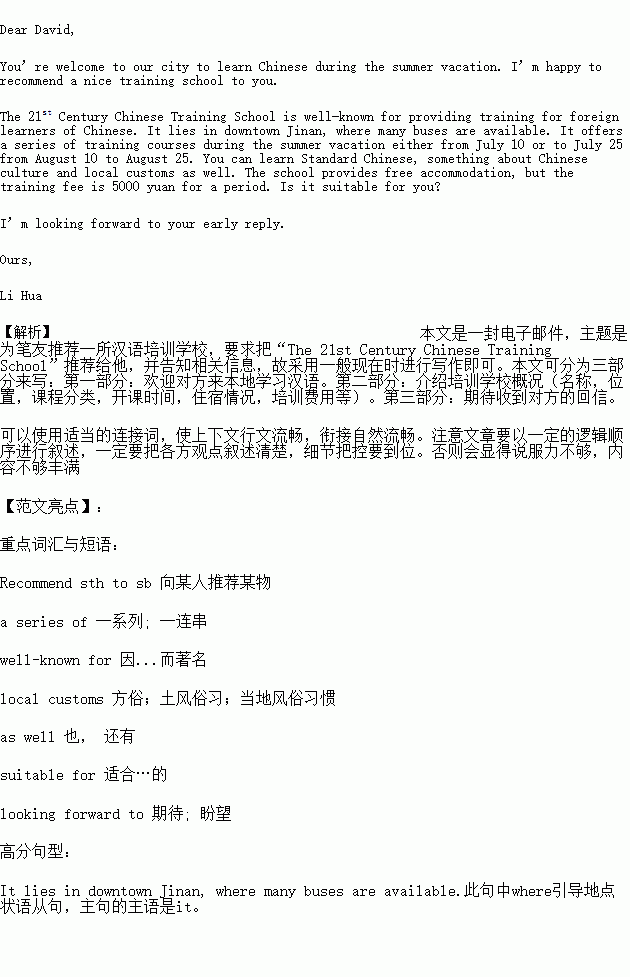题目内容
假定你是李华,你的英国朋友David暑假期间想来你所在的城市学习汉语,让你帮他选择培训学校。请用英语给他写一封电子邮件,把The 21st Century Chinese Training School推荐给他,告知他推荐的理由,以及他学习的时间、课程内容、食宿、交通及学费等情况。
注意:
1.词数100左右;
2.可以适当增加细节,以使行文连贯;
3.开头和结尾已为你写好,不计入总词数。
Dear David,
___________________________________________
Yours,
Li Hua
练习册系列答案
相关题目

